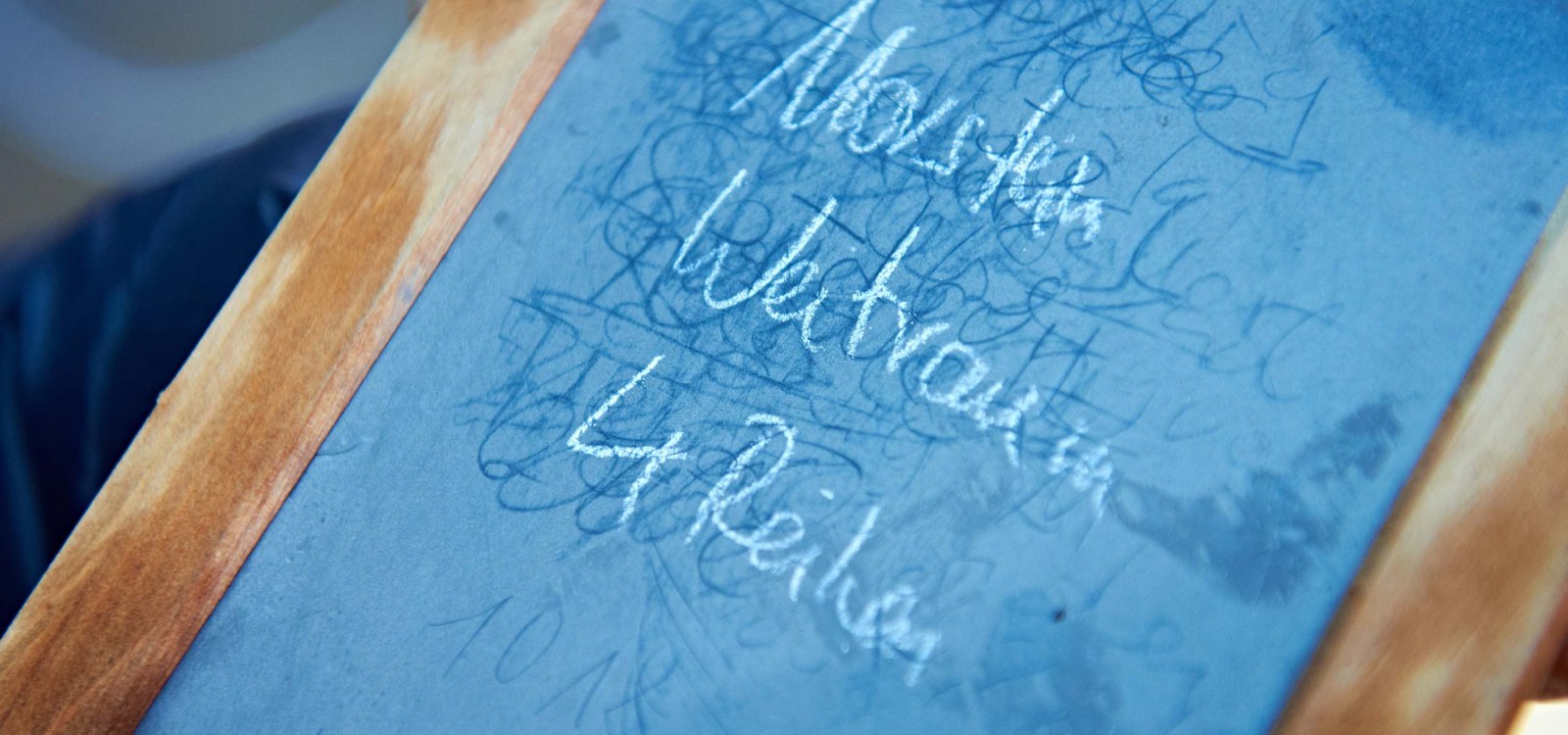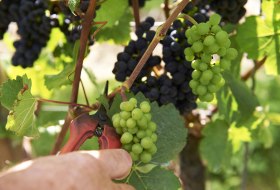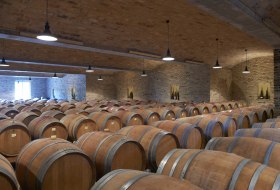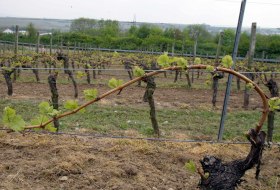
searchMenu



The "green harvest" or "thinning out" describes the premature cutting out of grapes in order to reduce the crop about six weeks before the actual harvest. The grapes, which are not yet ripe, are dropped on the ground. This increases the quality of the must obtained from the remaining grapes.

Predicate, that is only given on request by the quality inspection authority, if it meets certain legal requirements for quality and grape picking. Thus, a selection wine may not be enriched and, in Rheinhessen, must have a final must weight of at least 12.5% vol alcohol = 92 ° Oechsle in Silvaner and 13.8% vol alcohol = 100 ° Oechsle in all other grape varieties. Only fully ripened or noble rotten grapes may be used, excluding all sick and unripe berries.

The most typical of all Rheinhessen dishes ("invented" around 1800, later turned into an everyday dish, now "rediscovered"), prepared differently from village to village. Basic recipe: sliced raw potatoes, layered with salted and smoked pork, well seasoned (nutmeg, pepper, bay leaf) filled with wine, doused with sour cream, sprinkled with cinnamon, layered in a roasting pan and cooked in the oven. A delicacy, also as a "solid basis" for the subsequent wine enjoyment. Here you can find some recipes: (in German only) Framersheimer…

The Backfischfest is a mixture of wine and folk festival, which takes place every year in late August in Worms. There are rides, candy stalls and hearty meals, but above all, there is good wine from our local winemakers.

Originally only a French wine measure (barrique = barrel, usually 225 liters, but fluctuating dimensions). Today, wine is stored in barrels in order to achieve a certain wood tone flavour. The Barrique aging is practiced to improve the tannins of red wine . The "barrique flavour" (tannin and flavor components from the barrel wood) has increasingly found buyer interest and fits in particular with strong red and white wines.

Predicate for a quality wine, which must meet the following requirements in addition to the general ones: The grapes must be attacked by noble rot or at least be overripe. The wine must have a minimum natural alcohol content of 16.5% vol alcohol = 120 degrees Oechsle for all grape varieties.

Term of the German wine law. It describes the area a wine is from, when it is made from several vineyards in the same area. Rheinhessen is divided into three different "Bereiche": Bingen, Nierstein and Wonnegau. It is only allowed to be used for quality wine, not for table wine.

Part of the vineyard work. It follows the pruning the vines and consists of bending the remaining vines (the fruit wood) sideways and tying them to the wire.

The literal translation into English is "pencil from Bingen" and yet, in Rheinhessen, it means a corkscrew, whi, just like a pencil, is an important tool, that one should aways carry. The expression refers to a legendary City council meeting, that is supposed to have happened in Bingen in 1752. According to the legend, the meeting had to be cacelled, as none of the councilors had brought a pencil for taking notes. The meeting then was continued in the city hall's restaurant. As the mayor wanted to open the first bottle of wine, he noticed,…

"BSA" is the German abbreviation for malolactic fermentation (MLF). It is a process that happens during or after alcoholic fermentation . At a temperature of about 20°C, the process is started naturally or by bacteria, that is added. During the MLF, malic acid, a pointed and spicy acid, is turned into the softer lactic acid. A by product is carbonic acid.